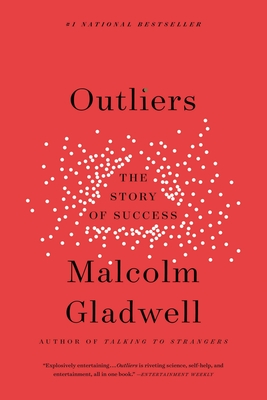Outliers: The Story of Success

Malcolm Gladwell’s Outliers shares multiple factors behind success, and that success isn’t just a combination of talent and hard work. Here are the key takeaways:
- The self-made man is a myth. We have a bias to attribute success to ability and hard work. Yet, other factors are at play. Read on!
- For most professions, there’s a base threshold for success. Once you move beyond that threshold, having a better ability doesn’t increase success. For example, if you’re a Mike Tyson, you reached 71 inches. The average boxer has a reach of 76.” It’s related skills and abilities that matter. For an attorney, those additional items could be the ability to connect with others.
- While this point is debated, to be world-class in anything, you must spend about 10K hours developing your craft.
- On this one, you don’t have much control. The month you’re born impacts what you can achieve. For example, my kiddos play hockey. Teams are based on birth year. So, someone born in January of a year could compete with someone of December of the same year… a year difference. Please do it for those of you considering holding your kid back from school. Research shows it gives them a head start in life. Holding back would not be valid if all families practiced this approach.
- Use practical intelligence. Know who, when, and how to connect with people up and down the food chain. The reality is kids of more affluent parents have entitlement, making them practice practical intelligence. On the flip side, sadly, poorer parents are less likely to teach valuable intelligence.
- Like the month you were born, when you are born matters. Consider Bill Gates; he was born to be a young adult when the PC was almost of age and had enough technology to make it a reality. For tech, it was best to be born around 1955.
- Being born in different parts of the world matters.
- Where you rank shouldn’t matter regarding important decisions or stating your objections. Yet, this isn’t always so. The book cites Korean Air, which had a crash rate 17X higher than the industry average. Why? Younger pilots did not express their concerns difference from older pilots. Korean Air hired a firm to help correct this behavior.
As leaders or influencers, we should look for ways to level the playing field for all.